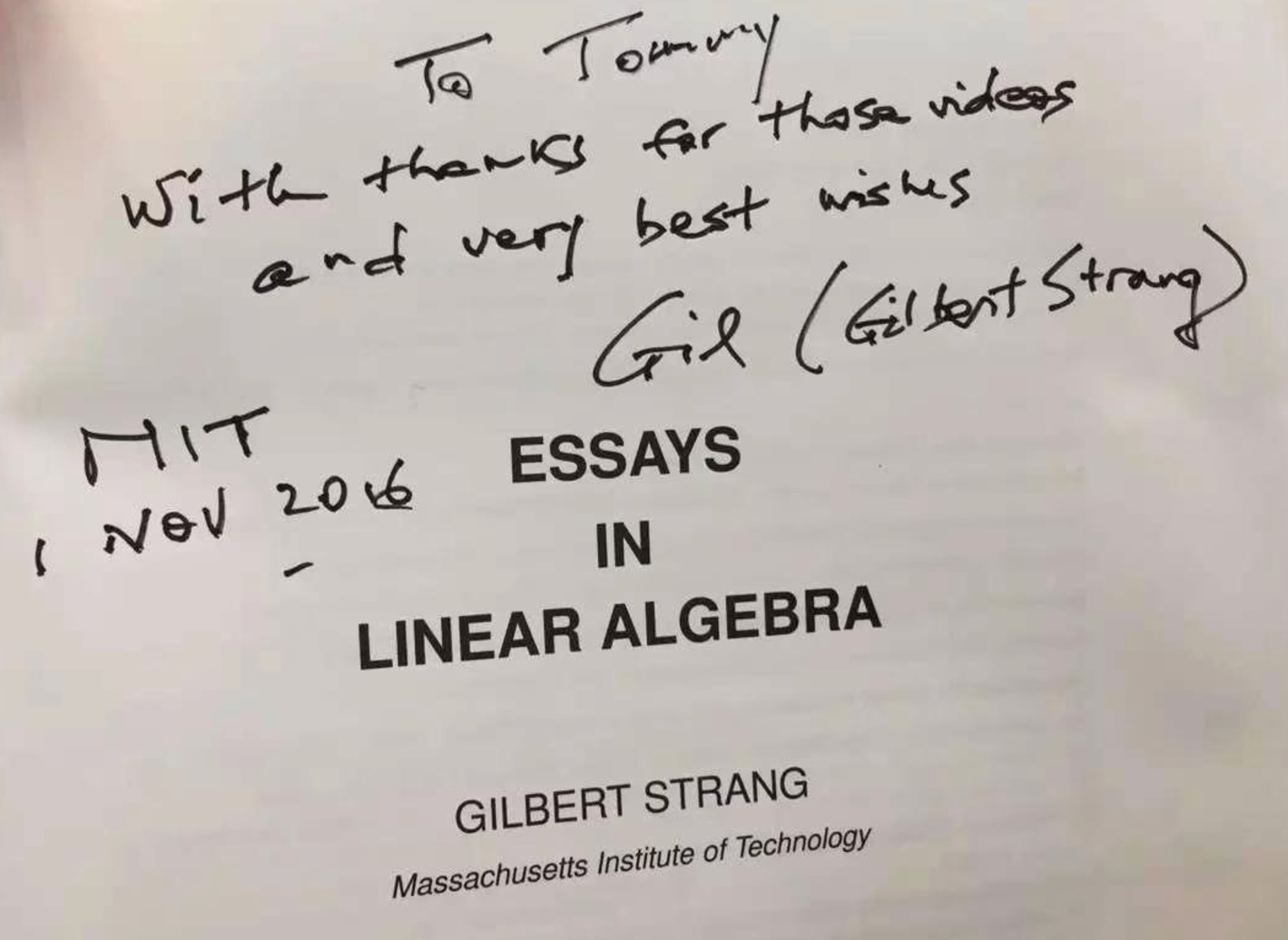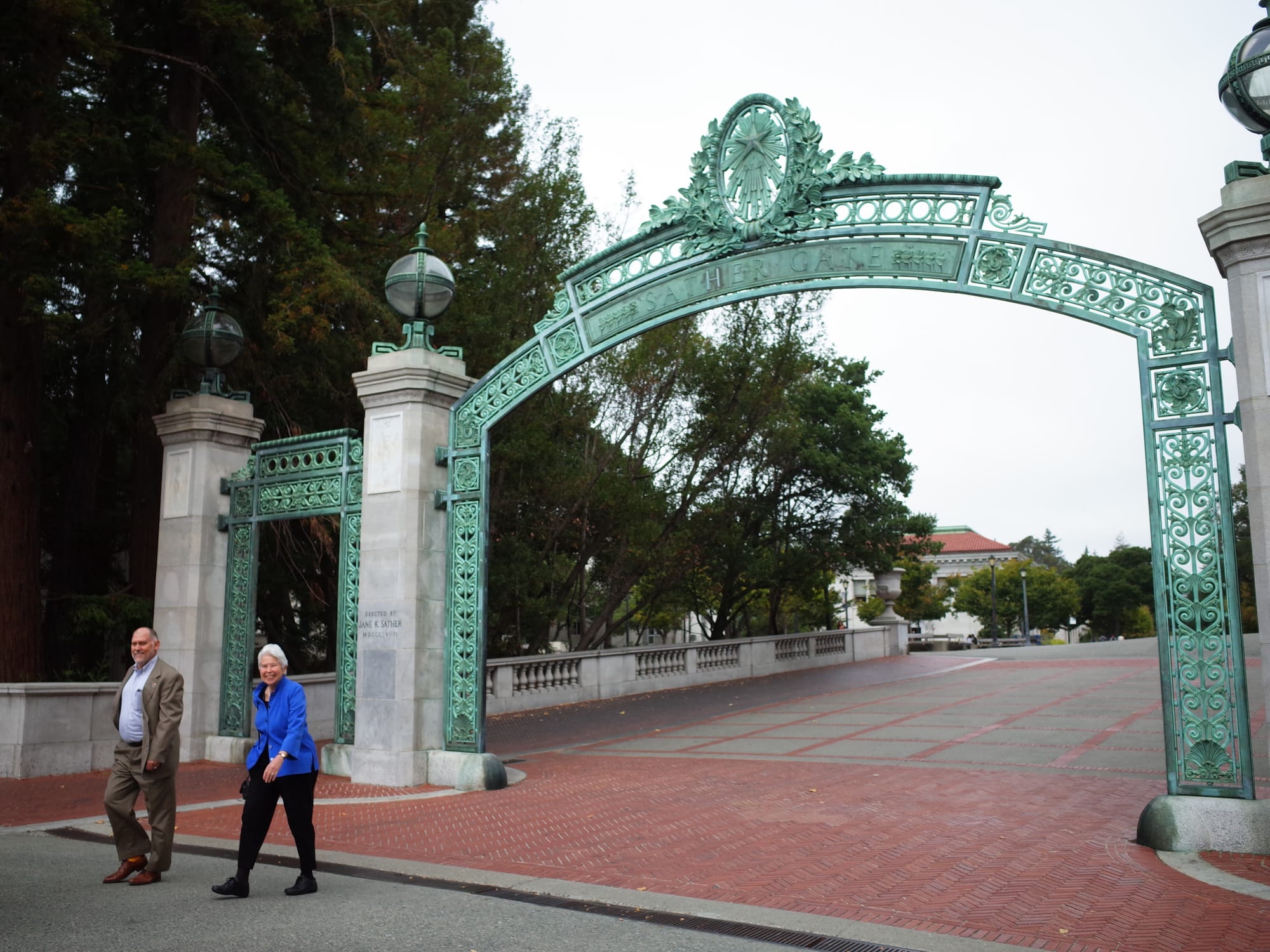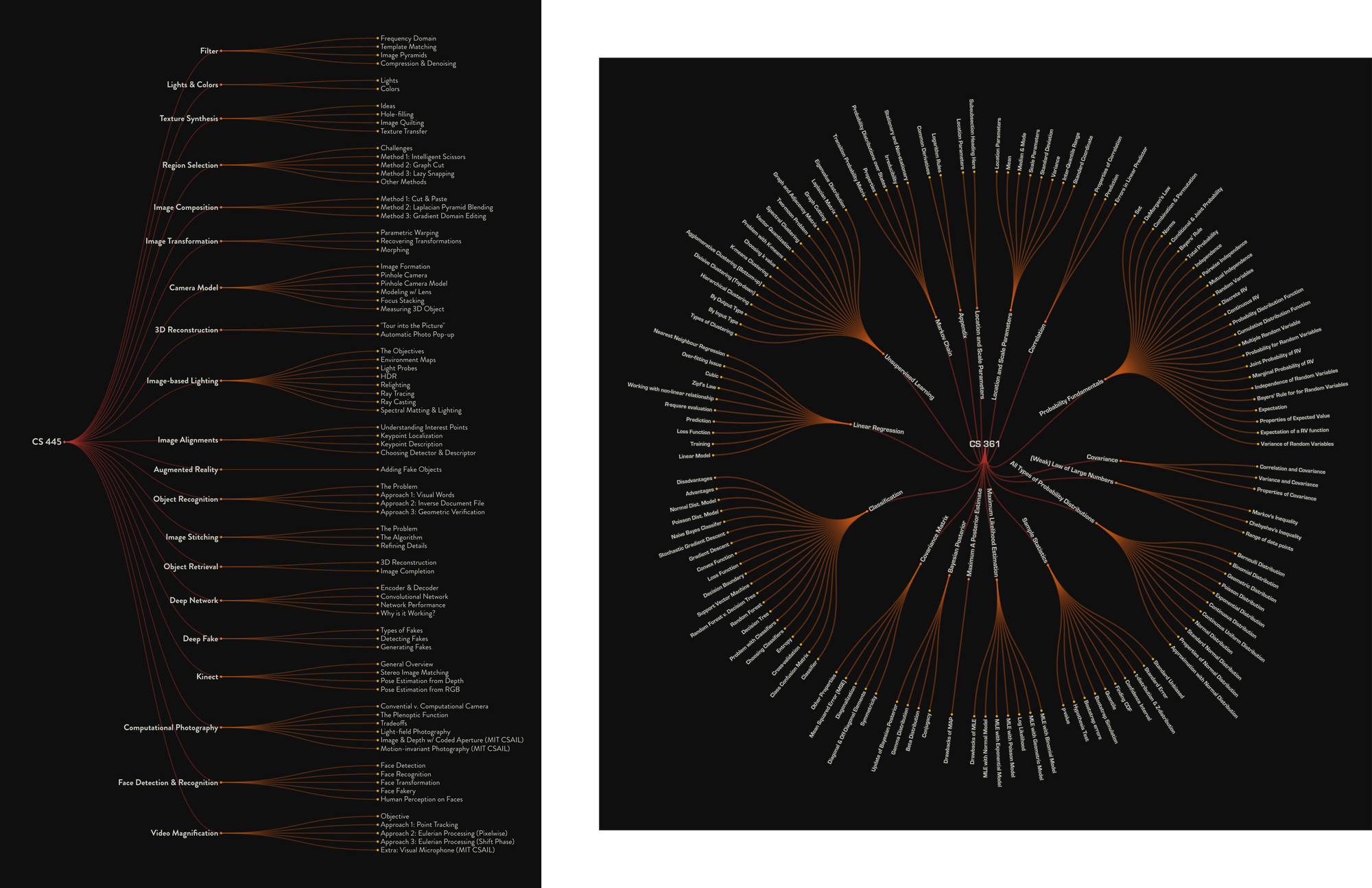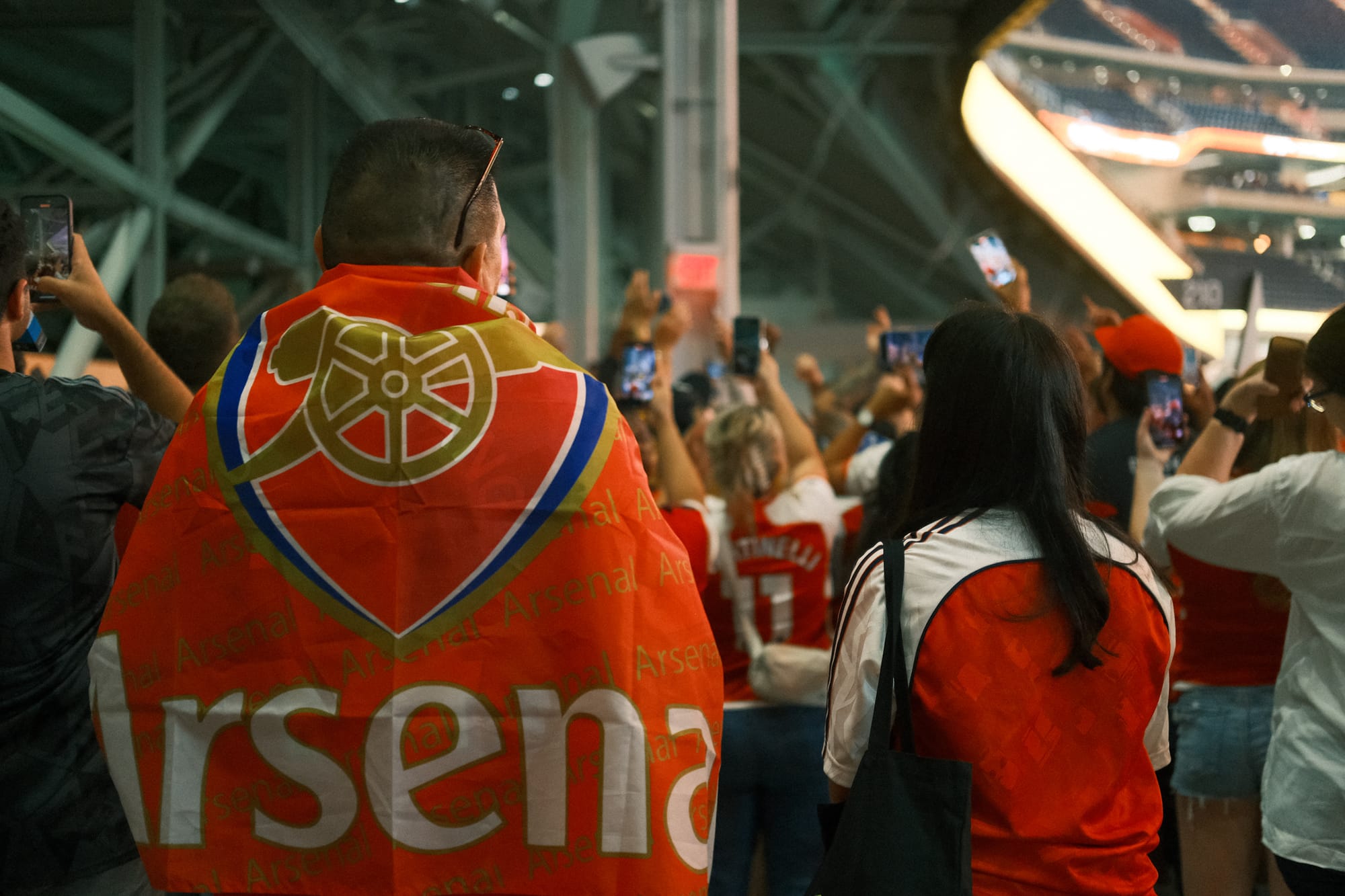A belated year(s) in review

TL;DR
This will be more like a brief recap of my past few years. A few important dates:
- Ten years ago, I made the rather rash decision to work as a software developer instead of going to college.
- Eight years ago, I made a decision of starting a tech company with my friend, instead of going to college, again.
- Almost three years ago, I left my first startup, and was finally coming back to college to finish my undergraduate degree.
Let's just start with the most recent one, which happened during the COVID period.
College Application, 8 years after High School
To be honest, when I reapplied to university in 2020, I wasn't sure if any school would admit me. Back in 2012, I applied to a few U.S. schools and received offers from several of my dream schools. But in 2020, I was no longer the fresh high school graduate; I was older than the typical applicant, and my outdated standardized test scores didn't quite reflect who I was then. Plus, I was up against a pool of talented high schoolers, where the number of applicants was much greater than in my time. So, filling out those 20 applications while juggling my duties as a startup founder was exhausting.
Of all the schools I applied to, I had only one video interview, quite a pleasuring one. An email hit my inbox one day from the MIT admission office, I was surprised, and thought it was spam. But no, it was an email from an alumni volunteer saying she would be doing an interview with me, her name was Susan. With a few days to prepare, we did the interview via Zoom. There is one moment I now recall quite clearly.
"Hello Tommy – oh hey, you are wearing the shirt!"
Susan said at the beginning, pointing to my somewhat faded shirt, which has the equation $\frac{E}{C^2} \sqrt{-1} \frac{PV}{nR}$ printed on the front – essentially 'MIT' in a nerdy form. I bought this shirt while traveling to Boston in 2016, a pivotal moment when I decided to continue with my startup instead of pursuing a degree again. Meeting Prof. Gilbert Strang of MIT was a special moment; he inspired me to explore MOOCs back in the summer of 2011, when I was part of a team translating his Linear Algebra course from English to Chinese. He taught me that teaching and learning are lifelong tasks. His spirit of perseverance, which has sustained him for over 50 years of teaching – and still going strong on YouTube, beloved by millions – deeply impacted me. I'm grateful for his encouragement and trust, and for his recommendations, offered twice, even eight years after our first online meeting via email. Susan's greeting brought back these memories back. I had been so determined to study at MIT, influenced by Prof. Strang, the hacker culture, the city's walkability, and the wonderful people I met there. I was rejected twice. But who knows – perseverance is the key – according to one of MIT CSAIL's posts.

The other day in February, when I was working from home, I received an email from the UIUC admission office. From that moment, a bond was formed between me and this place – a place I never learned much about, a surprise to my life. So, out of 20 schools, 19 rejected me. I was about to embark on a new journey in the cornfield.
There are two main reasons that pushed me to come to the U.S., one is that my girlfriend is pursuing her doctoral study here, and we don't want to separate for a long-distant relationship. The other one is that, deep down in my heart, I wanted to make up for the rash decisions I made. The degree may just be a piece of paper, but its value largely depends on the student's proactivity during these two to four years. One could just pass all classes and then graduate, while another might do more – choose to engage more deeply, connecting with professors, peers, and various communities. The network created, not just the friendships or connections but also the advantages provided by a formal institution, could be a significant step forward in their learning.

Every life lesson comes to a cost, whether it's about money time, or both. Embrace it and move forward.
UIUC
I have just concluded my fifth semester here at UIUC, and so far everything has gone well. I'm going to quote some of the questions that my course advisor asked me a year ago to describe my up-to-date experience.
Are you happy with your grades? – a faculty mentor
Do I have a good GPA? Sure, I am satisfied with any grade above $\texttt{3.5}$. But more importantly, did I meet some interesting faces? Yes, in general, CS @UIUC is a resemblance to MIT in terms of the hacker culture, in my humble opinion. I've had a great time learning new things about the campus, the professors, and the students here.
Did I learn anything? Well, for the first two years, most of the CS technical core wasn't too challenging for me, as I had more experience than many of my peers, which is unfair to say. However, I gained a lot from picking up the maths. I felt really positive about revisiting my knowledge in most of the math courses at UIUC, especially with Prof. Matthew Russell in Calculus III and Prof. Hongye Liu in Probability & Statistics for CS. Not surprisingly, I made the most comprehensive notes in these two classes as well.

On another note, what I am really amazed about is how well CS @UIUC is doing in computing education, and it's still improving. Take CS 124 for example, the equivalent to Harvard's CS 50 (fun fact, Prof. Malan of CS 50 is a friend of Prof. Colleen, one of CS 124's professors). This course is the starting point for any student new to CS, and its structure is thoughtfully designed to suit a wide range of student demographics. Prof. Challen and his team developed an interactive system for students to code around inside a web browser of their own programming language choice, with different versions of interpretations for certain objectives. This project later has a neat domain called learncs.online. It has the most structured and intuitive representation for learning in a web page setup I've ever seen. Compared to what I researched when I was doing my EdTech startup and teaching students in Hong Kong K-12 schools, I would say CS 124 can be a generous and fulfilling experience for programming novice.
There are other people and groups in the department doing relevant things. Prof. Chad Lane is one of the professors I approached when I entered UIUC and seeking research opportunities. He later introduced me to Prof. Mike Tissenbaum, where I spent almost all of my UIUC time at his lab, Pixel Playground Lab. There, I collaborated with his PhD student, Casey Smith, on the HCI & EdTech project, REACH, which aimed to improve remote maker space learning through a projector-camera system. I once imagined this could be an alternative or pilot version of Bret Victor's Dynamicland. We are still working on making this setup accessible to all audiences. Another influential faculty member I met was Prof. Geoffrey Herman of CS 233 (Computer Architecture with MIPS), is conducting many research on improving student's performance in CS classes. The PrairieLearn is one open-source learning platform he and his team designed to digitize math and CS learning, for a better experience for both teachers and students. While some may find its usability challenging for certain courses, its modular design shows potential to replace traditional learning management systems in the future. As of now, I'm seeing more than five U.S. universities are using it, at least according to the institution login options I saw today. Prof. Angrave of CS 341 and his team are doing research and development on the accessibility for online learning, called ClassTranscribe, while also providing an in-browser VM for students to learn system programming. Dr. Ziang Xiao is a friend I met through a local film development lab, worked on a project at the university focusing on evaluating and improving engineering students' spatial visualization abilities across various demographics. There are just many more interesting people I can name if I have more spaces here.
To elaborate, there's an additional factor that motivated me to pursue a degree: gaining more exposure to fundamental CS research in an academic setting. Fields like computer vision and graphics, compilers, have always fascinated me since high school. Projects from the MIT Media Lab, such as the Sixth Sense project, largely influenced my love for Computer Science and its intersection with other creative or technical fields.
Do you know what you want to do after you graduate? Do you have any questions about research and PhD programs? – a faculty mentor
When I first saw these two questions, I pondered for a while. My simplest answer is a straight inequality:
$$P(\text{Applying for PhD}) > P(\text{Finding a job}) > P(\text{A new startup})$$
At this point, I can either start fresh (first option) or start from scratch (latter two options). As an outlier, I will have to weave my own path from here.
PhD may be a good option for me, simply because I want to go in-depth into specific fields. During my eight years in the industry (2013-2021), I had the pleasure of working with people across various fields and sectors: software, hardware, supply chain, design, architecture, photography, education, and VCs. I was in Beijing, Shanghai, and Shenzhen, cities with opportunities. This period of experience has molded my mindset to think in a multidisciplinary way. While breadth is valuable, I also want to try my hand at fundamental CS research. In the context of when AGI becomes true in an (if) not distant future, it can definitely be good at everything, but it's not going to excel at everything (otherwise humans are doomed; yes, I'm that pessimistic).
There's a good chance that I might get rejected from every program; I always consider the worst-case scenario when making decisions. For now, I'm choosing to ignore this possible outcome. If the worst actually happens, well, it's another story to tell. Prof. Jeff Erikson's tale tells me that anything is possible.
Studying at UIUC is something I never thought about, it is a fortune to be here meeting all kinds of people around campus. I will be always thankful to that admission committee for their decision. I will be paying off my college tuition myself for undergraduate, and I think this is going to be the proudest thing I have done during these four years.
Time in the U.S.
This post should not only be just storytelling. It should be more lively. I should write something about my spare time here, which is mostly spending time driving around with my loved one. Since I got my driving license in 2022, we started enjoying road trips and exploring new cities we've never been apart from the Bay Area, traveling North to Sonoma, Napa, Davis, Klamath, Portland; and East/South to Yosemite, Lake Tahoe, Santa Cruz, Monterey, Death Valley, Las Vegas, Los Angeles, Pasadena, Irving, San Diego. It was definitely a joy.


Other than the road trip, we were just working and studying. Oh, right, both of us started to learn a new foreign language in 2023. This happened when I took a German culture class in 2023 and started learning German; and she started to pick up French when she first learned during her undergraduate period. Despite I only spent about 10 minutes on average on Duolingo, it made me keeps the desire to learn this language. Time to take a German language class next semester.


There's Always a New Chapter
Each year, as we complete another orbit around the sun, it marks a special moment. We set new goals, carry forward some from the past, and celebrate those we've achieved. I certainly reached a few milestones in 2023 and am carrying others into 2024. Every year is a new chapter in my life, yet each one is deeply interconnected. One goal I'm setting for myself is to write more posts here in 2024, whether to consolidate my thoughts and ideas, or just to share photos, or just QotDs.
Here is to 2024: stay kind, work hard, enjoy spare time, as always. Like GD, like ADAM, be optimistically optimizable.
